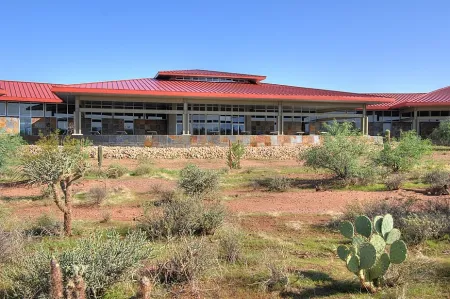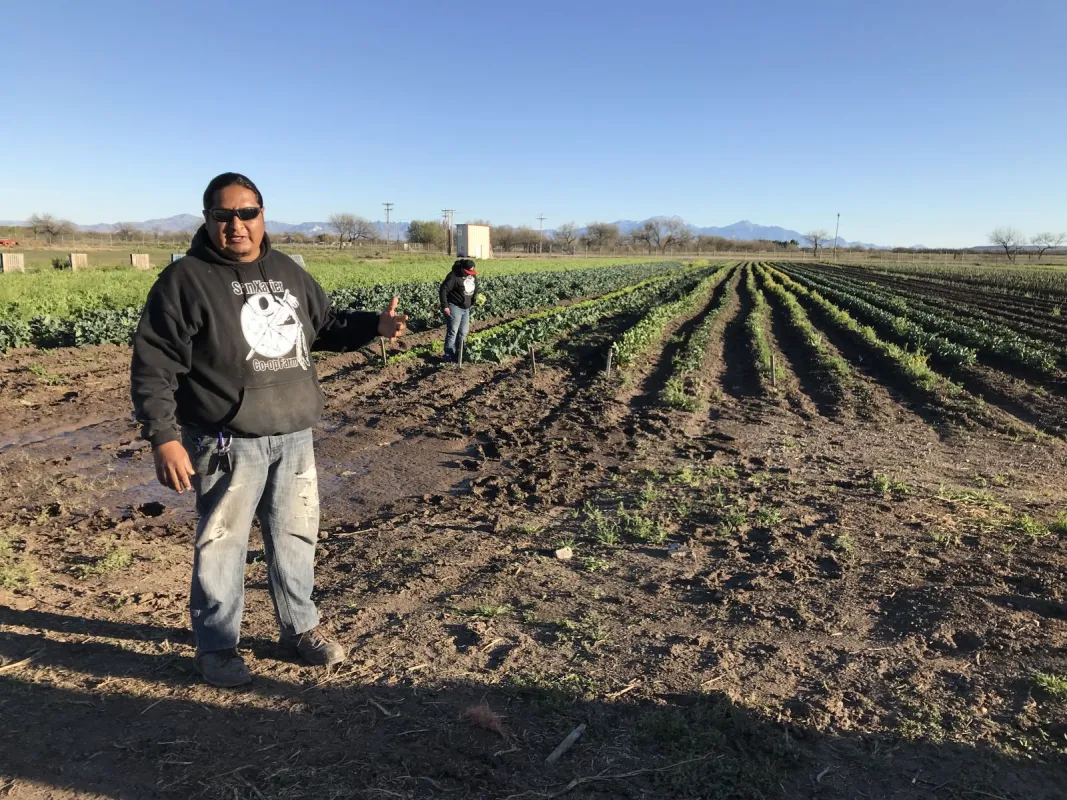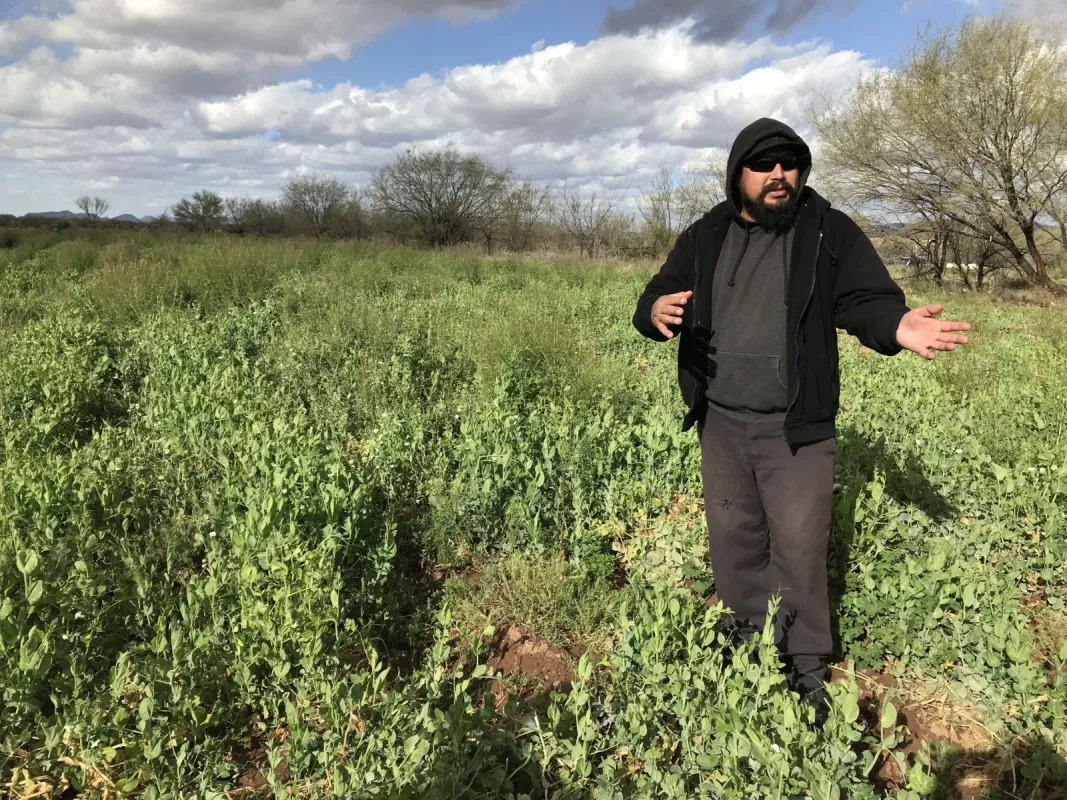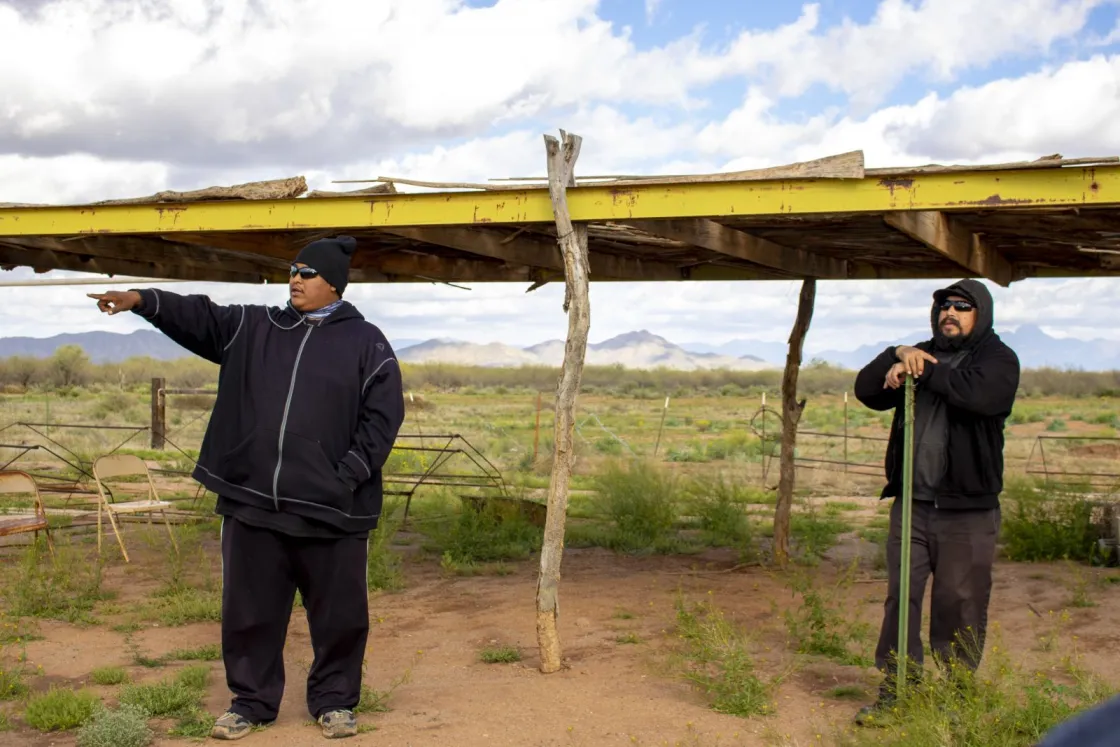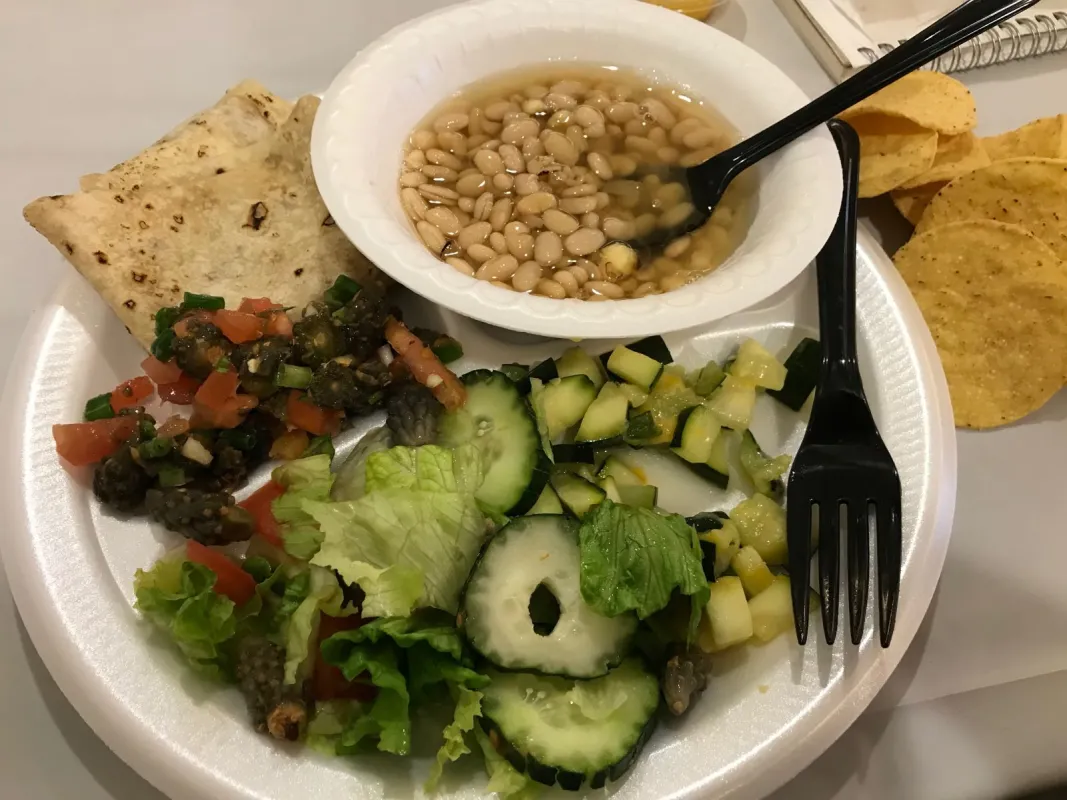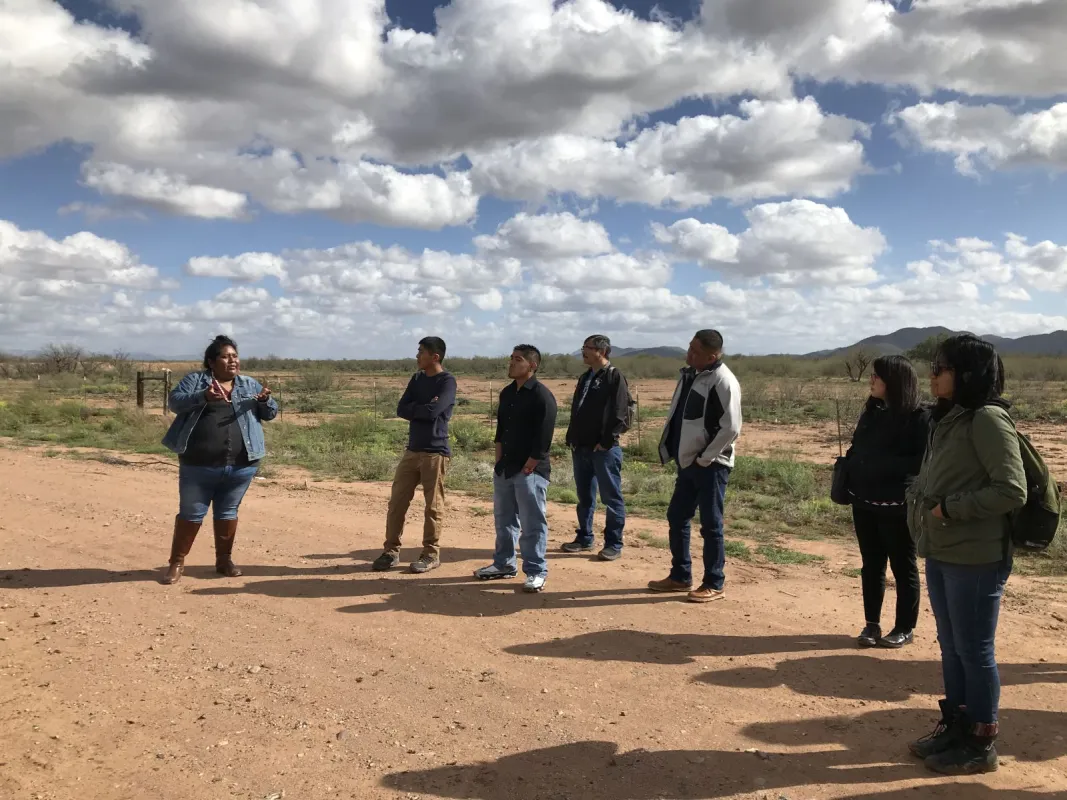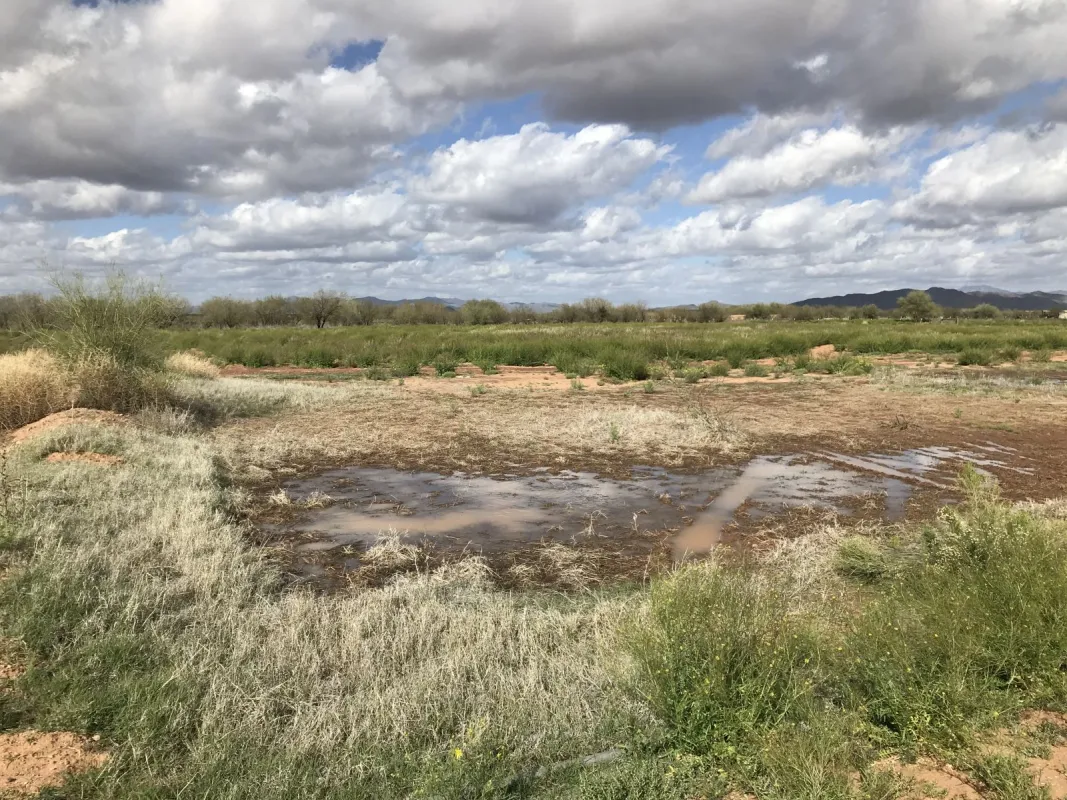On March 12 to 15, 2019, the Indigenous Foods Knowledges Network (IFKN) held its second network meeting on Tohono O’odham Nation lands, including the University of Arizona. The IFKN steering committee chose the theme of “Indigenous Knowledge” for this gathering. Amy Juan of the International Indian Treaty Council and Sustainable Nations, an organization dedicated to sustainable community building, hosted the meeting. ELOKA co-lead Noor Johnson, principal investigator for the IFKN project, co-organized and attended the meeting.
The meeting was held at the Himdag Ki: Way of Life House cultural center and museum at the University of Arizona, with site visits to a number of local organizations. More than 25 Indigenous participants, including five from Alaska, participated in the meeting to learn about community efforts at Tohono O’odham to reintroduce sustainable farming practices and traditional crops and to build climate resilience.
Details and outcomes
Dr. Selso Villegas, director of water resources for Tohono O’odham, spoke about the interconnection between water and food security and emphasized the need for mitigation and adaptation action to address climate change. On the Tohono O’odham Community Action farm, Jesse Garcia and Gilbert Villegas, Jr., showed participants the crops they are growing using berm irrigation techniques. At the San Xavier Co-Operative Farm on the outskirts of Tucson, farm employees described the work that has been done over several decades to develop farming skills and knowledge in the younger generation, and participants enjoyed a meal featuring traditional foods including tepary beans, squash, and cactus buds. Participants identified areas of common interest for further work, including working to identify innovative ways of sharing food knowledge, such as through digital storytelling. At the end of the meeting, Kari Shaginoff and Shawna Larsen from Chickaloon Village, Alaska, invited the network to join them for their annual Nay’dini’aa Na’Kayax culture camp in June 2019.
The Indigenous Foods Knowledges Network is a four-year, NSF-funded research coordination network focusing on food, knowledge, and data sovereignty in the US Southwest and the Arctic. Indigenous communities serve as hosts, helping organize the meetings and engaging local harvesters, farmers, Indigenous knowledge holders, and community leaders. At each meeting, participants spend time visiting projects and connecting with the land and with one another. The meetings, held once or twice a year, alternate between Southwest and Arctic locations. One of the goals of this network is to build a community of scholars and community leaders to learn about shared challenges and community-driven solutions to building resiliency in the context of environmental change.
